
Some of y'all might recall a couple of years back when I wrote an article for the site entitled, "How To Handle Folks Who 'Trigger' You". Hmph. Let me just say from very up close and personal experience that once you have truly mastered how to "deactivate your triggers" (oh, and control your physical and sexual appetite yet that's another topic for another time), you are pretty much unstoppable.
And while a lot of what I said in that piece could translate to how you handle your Instagram, Twitter, Facebook and other social media accounts, I thought it would also be beneficial to offer up some tips on how to handle those specific kinds of triggers. Because since most folks spend around 2 ½ hours a day on various social media accounts, it's really important to know how to navigate the rocky waters known as the internet — how not to let people (or content) get (or keep) you shook.
1. Remember, Social Media Isn’t Therapy
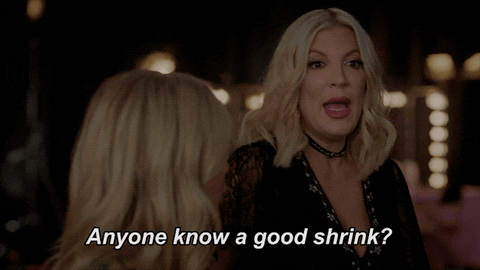
Not too long ago, I was having a conversation with someone who asked me if I thought they shared too much on social media. My response was, "I think the bigger question is do you think you expect too much from it?"
Listen, people are fickle. Humans are fallible. And when you're interacting with dozens, if not hundreds or thousands of them at a time, you are setting yourself up to, at the very least, be disappointed.
You're grown, so if you want to tell all of your business on your pages, that is totally up to you. However, sitting around taking in opinions about your personal life, dilemmas and traumas all day is setting you up to be disappointed more than helped. I have a motto — social media ain't therapy. Sure, it might be free to use yet therapists/counselors/life coaches are far more equipped to give you what you need than a whole lot of random commenters. If you remember this point alone, it can spare a lot of triggering. Trust me.
2. Use It for a Purpose. More than a Distraction.
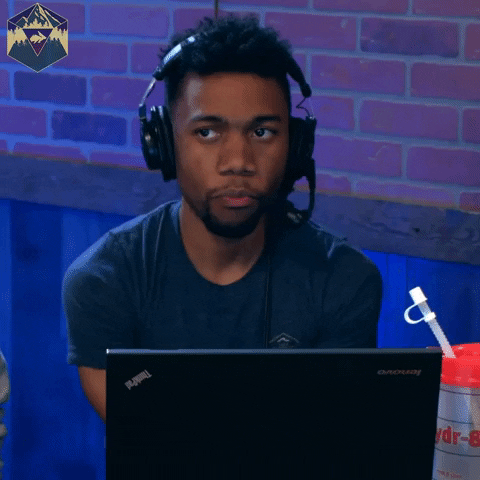
If you've ever been curious about the history of social media, an article worth checking out (that was published by Maryville University) is "The Evolution of Social Media: How Did It Begin, and Where Could It Go Next?". A line in it says, "In less than a generation, social media has evolved from direct electronic information exchange, to virtual gathering place, to retail platform, to vital 21st-century marketing tool." Indeed. Yet, let's be real — it's also turned into a cesspool for gossip, trolling and passive aggressive ways to target people. Although I don't personally use social media, I see various purposes that it can serve and that's kind of my point — remember the purpose for why you are using it. If all that you're on there for is to see which real housewife is in some mess or to spend hours talking about how men are trash (eye roll), all that's doing is wasting precious time. Plus, how is that improving you and your life on any substantial level?
Am I saying that social media shouldn't be fun? Sure, it should. Yet really think about why it can easily take up hours and hours of your day. If you can't connect it to how it's helping you progress on some level, that's a good enough reason to scale back. Even if it's just a little bit.
3. Customize Your Notifications
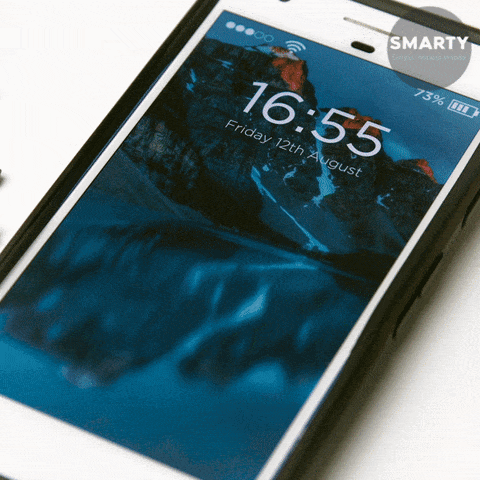
Other than having a low-key social media addiction (check out "Social Media: How To Take Back Control Of What You're Consuming"), I'm not sure what would make us watch our phone ring and then let it go to voicemail and yet see notifications go off and think that we immediately need to check every single one. And then, based on what we see, let it totally throw us off and even put us in a not-the-best-kind-of mood for hours on end. That's why I'm all about folks learning how to customize their notifications so that only certain ones go off or they are reminded to only check them during certain times of the day. Listen, keeping up with the monkey-branching hamster wheel dynamic of Ben and J.Lo isn't going to help you to finish that report that's due, clean up your bedroom or pay those bills.
Besides, if there's one thing about the internet, it's that, whatever's been posted, you can find it by doing a quick Google search hours, days and even years later. In other words, you're really not missing much to the point where you need to act with a sense of urgency; regardless of how much your notifications go off. Anyway, if you want to learn more about this particular point, check out Shift's "How to Avoid Notification Overload" and then consider doing what it says. You shouldn't be a slave to your notifications. You've got the power not to be.
4. Post Something Positive to Combat Negativity
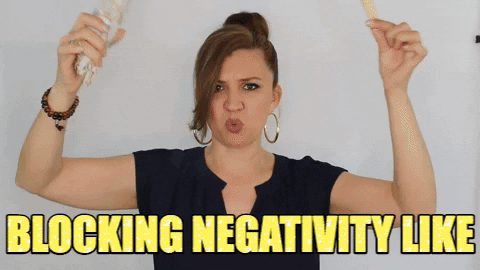
Negative bias is a real thing. If you don't believe me, ask someone to share with you five things they like about themselves followed by five things that they don't; I'd be shocked if they didn't list the things that they don't like first. This is why a lot of people can be drawn to bad news more than good news. Unfortunately, social media has plenty of the former. If, as much as you like being on Black Twitter or surfing IG, this is what gets on your nerves the most, be a light in your little part of cyberspace by posting something positive — a quote, a great picture…something that will inspire others. It might not seem like you're doing much on the surface yet you'd be amazed how much something this simple can help to shift energy, even if it's only on your own pages. Just try it and see.
5. Actually Use the “Mute” Feature
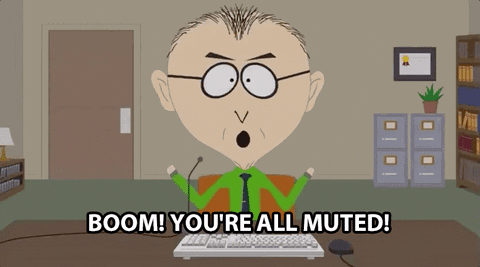
I'll be honest — when I do tiptoe in to see what folks are doing out in social media, it's like it's a social media experiment on how many people know what a monologue vs. a dialogue actually is. In other words, while social media apps are supposed to be about communicating with others, some folks just want others to hear them talk all day long and so, whenever someone else doesn't think they've got the greatest thoughts ever, they mute or block them. Yeah, one day we'll get into the rise of social media narcissism. For now, I'll just say that I once read an article that stated social media has caused a 25 percent increase in narcissism among people who are between the ages of 18-34. So, when I talk about using the mute feature that's available on most apps, I'm not advising this to folks who only want to hear themselves speak.
No, what I mean is some folks are contrary just to be contrary. They don't want to get to know you better, hear your point of view or have a healthy exchange. They really just want to be assholes. If as much as you know that, you still can't seem to shake how they affect you, then yeah — mute 'em. That way, they can keep on ranting if they want without you having to see it. By the way, the mute feature is also cool for if you want to hop online but you need a break from someone else's timeline traffic or you want to mute a word so that you don't have to keep hearing about the same things over and over again. Muting is a social media feature and a blessing. Use it as another way to deactivate an online trigger.
6. Know What You Know
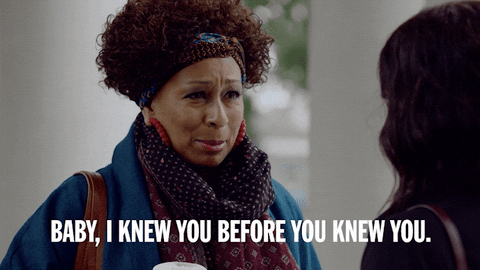
Back in my Facebook days, many years ago, I set my page up to be a free forum for folks to share their thoughts. One rule that I had, even when it came to what folks said to and/or about me, was I wouldn't delete any comments. And boy, did that make things really interesting. Anyway, even back then, I had to really get pushed to get upset because I could tell who was sharing an opinion vs. who was actually speaking facts.
Something that's kinda crazy about social media is how many people are so passionate about their own feelings and conclusions that they think they are truth-based data when opening up a Google browser can oftentimes easily prove otherwise. That said, there is a pandemic of unteachable people on social media — individuals who think they know every damn thing (and don't). There's no point in letting those kinds of folks get to you. If you know that what you know can be proven and cited, share the info and then let the potential debate go. Facts can easily stand on their own which actually brings me to my next point.
7. Free Yourself from Always Needing to Have the Last Word

As I've gotten away from controlling relatives (check out "Why You Should Be Unapologetic About Setting Boundaries With Toxic Family Members"), it's amazing how less controlling I've become (check out "You Just Might Be A Control Freak (In Recovery)"). Hmph. Funny how when folks are trying to run your life, you find yourself trying to do the same thing to others…as a form of gaining back some sort of control (chile). As I've freed myself from this pattern, something I've needed to have less and less of is the last word.
People who are consumed with needing to have the final say on something are typically battling with some form of needing to control something or someone, whether they realize it or not. These days, I'm more concerned about being impactful with what I say; if that's the case, who cares if I said the "final" thing or not? Same point applies to you on social media. A profound word says so much more than needing to get the last one.
If you totally get this and you still have a weakness in this area, remember what I said about the mute feature? Exactly.
8. Remember, You Don’t Know Those People (at Least Most of Them)
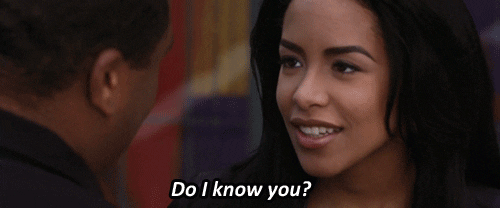
The older (and hopefully wiser) that I become, the more I'm like, "These folks really think we're still in high school" — in life, in general, and definitely when it comes to social media. When it comes to caring what people think, those in my life who really know me (check out "5 Signs You Really Know A Person") know that the people's opinions I care about, I truly do; oh, but that list is quite far and few between. And when I was on social media? I don't know 80 percent of those folks while 10 percent more are pretty transient in my world. They don't shift my life dynamic on any real or lasting level, one way or another, so honestly, after about a five-minute exchange, who cares what they think?
We see a lot of celebrities who totally lose their minds due to what happens on social media. And while I get that social pressure is indeed a thing — again, like peer pressure was in high school…see my point? — when you really stop and ponder the fact that your tribe isn't all of your online friends and followers, it helps to put things into a healthier perspective. When you hop online and really think, "I don't know these people like that", it gets harder and harder for them to trigger you because…why do they matter enough to get to you in that kind of headspace? This brings me to my next point.
9. Accept Trolls for What/Who They Are
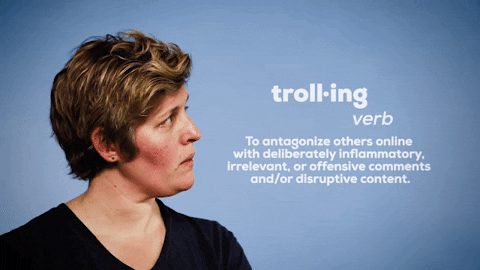
Bots. People with 10 followers. Folks with wack ass bios. Individuals who have avatars instead of pictures. People who have something ridiculous to say every time you say something. In short, trolls. They're basically folks who live to be controversial because they want to get up underneath your skin. What they say doesn't have to be right or even make a lot of sense; if they know it will get to you, they will say it.
You know what this means, right? You cannot give a troll the satisfaction of figuring out how to press your buttons. He or she isn't a significant part of your life, so why give their simple selves the satisfaction? Bottom line, if a troll truly gets to you, do some soul-searching into why. They're not worth it so why is it…worth it?
10. Have “Off” Days

Wanna know a sign that you've got a low-key social media addiction? One is if it's the first and last thing that you do on a daily basis (you wake up and get on it, you go to bed with your phone in your hand). Another indication is you can't imagine going even two days without checking your social media accounts. And here's the thing about both of these points — there is scientific evidence to support that taking social media fasts can decrease anxiety, increase positivity, boost your self-esteem, lower your stress levels and even help you to sleep better at night.
A couple of years ago, another writer penned, "What I Learned From My Two-Month Social Media Fast" for our site. Between it and other articles I've read on the topic, I haven't seen anyone say that they regretted taking time off of social media, a few times a year. It's definitely something to consider; especially if you find yourself getting triggered a lot later. Take some moments to woosah and gain your bearings. Because again, social media can be cool yet it's not worth having a heartache over — all because you've allowed too many randoms…to trigger you.
Join our xoTribe, an exclusive community dedicated to YOU and your stories and all things xoNecole. Be a part of a growing community of women from all over the world who come together to uplift, inspire, and inform each other on all things related to the glow up.
Featured image by Getty Images
This Is How To Keep 'Holiday Season Stress' From Infecting Your Relationship
Hmph. Maybe it’s just me, but it seems like there is something really weird happening in the fall season air (because winter doesn’t officially begin until December 21) that cuddle season is in full swing while break-up season is as well. In fact, did you know that break-ups are so popular during the holiday season that December 11 is deemed Break-Up Day?
The reasons why relationships shift around this time vary; however, I did both roll my eyes and chuckle when I read that a very popular one is because it’s an easy way to get out of getting one’s significant other a Christmas present. SMDH.
Anyway, I personally think that the less shallow folks out here may contemplate calling things “quits” or they at least distance themselves a bit from their partner (and what I’m referring to is serious relationships) due to all of the stress and strain that oftentimes comes with the holidays whether it be financial, familial, due to their tight schedules or something else.
Listen, I would hate for you and your man to miss the fun and happiness of experiencing this time of year, all because you are so overwhelmed or irritated that you can’t really enjoy it. That’s why I have a few practical tips for how to avoid allowing the typical holiday season stress from INFECTING your relationship.
Manage Your Expectations
 Giphy
GiphyUnmanaged expectations. If there is a main reason why the holiday season tends to be so stress-filled for so many people, I’d bet good money that this is the cause. And when you’re in a long-term relationship, expectations can manifest themselves in all sorts of cryptic and/or unexpected ways. You might have relatives who assume that you are going to be with them for Thanksgiving or Christmas when you have other plans in mind. You might be thinking that you are going to spend one amount for presents while your man is thinking something totally different. When it comes to scheduling, your signals may be crossed.
And you know what? To all of these scenarios, this is where clear and consistent communication come in. Don’t assume anything. Don’t dictate anything either. From now until New Year’s, mutually decide to check in once a week, just to make sure that you are both on the same page as it relates to the holidays and what you both are thinking will come along with it. The less blindsided you both feel, the less stressed out you will be. Trust me on this.
Set (and Keep) a Budget
 Giphy
GiphyOkay, so I read that last year, 36 percent of Americans incurred some type of holiday-related debt. Hmph. Last year, there was still some sense of normalcy in this country, chile, so I can only imagine what finances are gonna look like over the next several weeks. That said, since I don’t know a lot of people who don’t find being broke stressful, make sure that you and your bae set a budget and then stick to it this year — no ifs, ands or buts.
Because really, y’all — it doesn’t make sense to deplete savings and/or max out credit cards for a few days of giggles only to be damn near losing your mind because you don’t know how to make ends meet come Dr. Martin Luther King, Jr. Day.
And by the way, this tip doesn’t just speak to things like food and gifts; I also mean travel. If it doesn’t make a ton of sense (or cents) to be all over the place this year — DON’T BE.
Keep Matthew 5:37 at the Forefront
 Giphy
GiphyIf off the top of your head, you don’t know what Matthew 5:37 says, no worries, here ya go: “But let your ‘Yes’ be ‘Yes,’ and your ‘No,’ ‘No.’ For whatever is more than these is from the evil one.” That verse right there? Oh, it’s a boundaries lifesaver! I say that because do you see “maybe” or “I’ll think about it” in there? Nope. LOL. It says that you should tell people “yes” or “no” and leave it at that — and that complements Anne Lamott’s quote, “’No’ is a complete sentence” impeccably well. Yeah, you’ve got to remember that anything beyond a yes or no to a request is privileged information; you don’t owe anyone details or an explanation.
Besides, if you are really honest with yourself, when someone asks you something and you give a “Umm, let me think about it” kind of reply, more times than not, you already know what your answer is going to be — so why not let you both off of the hook? Give your response. Commit to that. And let everyone (including yourself) get on with their lives and schedules.
I promise you that when it comes to those holiday parties, you are pissing more folks off by not RSVP’ing or doing so and not showing up than just saying, “Thank you but not this year” off the rip.
Remember That Your Personal Space Is Privilege Not a Right
 Giphy
GiphyA friend of mine recently bought a new house and invited me over to come see it. He’s a single man with no children, so as I was taking in all of the space that he had, especially as I walked through his finished basement, I joked about relatives coming to live with him. “Hell no” and “absolutely not” were pretty much his immediate responses as he went on to say that some folks even had the nerve to be offended when he told them that he had no intentions on taking DNA in.
Ain’t it wild how people think that your stuff is their right? And yes, that brings me to my next point. Your home is your sanctuary space. If you want to host folks this year — cool. If not, ALSO COOL. Please don’t let folks (family included) guilt you into how they want you to act or even into what they would do if the shoe was on the other foot. You are not them — and as one of my favorite quotes states, “If two people were exactly alike, one of them would be unnecessary.” (A man by the name Larry Dixon said that.)
Hell, my friends? They know that I am good for sending them random things that they need or even want all throughout the year. Coming over to hang out at my pace, though. Uh-uh. Chalk it up to being a card-carrying member of the ambivert club yet I like keeping my living space personal — and I sleep like a baby, each and every night, for feeling that way.
Always remember that your space, your time, your resources, your energy and shoot, yourself period (including your relationship), are all things that are your own. You get to choose how, when and why you want to share them. The holiday season is certainly no exception.
Cultivate Some “You Two Only” Traditions
 Giphy
GiphyIt’s not uncommon for some couples to hit me up after the holiday season to “detox.” Sometimes it’s due to the financial drama (and sometimes trauma) that they experienced. Sometimes it’s because they allowed their relatives (especially in-laws) to get more into their personal business than they should’ve. More than anything, though, it tends to be because they didn’t get enough quality time together and so ended up feeling “disconnected.”
Please don’t let that happen. Listen, I’m not even a holidays kind of woman and yet, I will absolutely sit myself down with some hot chocolate and chocolate chip cookies to enjoy a Hallmark holiday film or two. Aside from the fact that most of them are lighthearted and sweet, I also like that they usually focus on couples loving on each other amidst all of the holiday beauty and ambiance — which is something that all couples should set aside some time to do.
Maybe it’s a vacation. Maybe it’s a staycation. Or maybe it’s my personal favorite, A SEXCATION. Whether it’s for a few days, the weekend or even overnight — don’t you let the holidays go by without setting aside time for you and your man to celebrate one another. Don’t you dare (check out “Are You Ready To Have Some Very Merry 'Christmas Sex'?”).
GET. SOME. REST.
 Giphy
GiphyI once read that 8 out of 10 people get stressed out over the holidays and 3 out of 10 lose sleep during to it — and when you’re stress-filled and sleep-deprived, that can absolutely lead to hypersensitivity, making mountains out of molehills and even not being in the mood for sex.
Your relationship can’t afford to go through any of this, so definitely make sure to prioritize rest. I don’t care how unrealistic it might seem during this time, sleep should never be seen as a luxury; it will always and forever be a great necessity.
That said, try to get no less than six hours of shut-eye in (check out “6 Fascinating Ways Sex And Sleep Definitely Go Hand In Hand”) and even ask your bae to take a nap with you sometimes (check out “Wanna Have Some Next-Level Sex? Take A Nap, Sis.”). Not only will sleep help to restore your mind, body and spirit but, when it’s with your partner, it’s an act of intimacy that can make you both feel super connected, even in the midst of what might feel like chaos.
___
Holiday season stress is real. Still, never give it the permission or power to throw your relationship off. Put you and your man first and let the holidays be what they are gonna be, chile.
Let’s make things inbox official! Sign up for the xoNecole newsletter for love, wellness, career, and exclusive content delivered straight to your inbox.
Featured image by Shutterstock
There’s just something about the chilly weather that makes you want to be curled up with a warm blanket, sipping on your soup of choice. Whether that be chicken noodle, tomato, or even a hearty chili soup, the options and benefits to your overall health are endless.
Everyone knows that a great soup first starts with a rich and tasty broth. According to nutrition expert Dr. Kellyann Petrucci, having a perfect broth isn’t just about the flavor, it’s about the nutrients and health benefits that it can offer you from collagen, gelatin, and glycine. “Bone broth is the best whole food source of collagen,” Dr. Petrucci tells xoNecole. “Collagen protein is in foods such as cuts of meat full of connective tissue like pot roast, brisket, and chuck steak. Bone broth has emerged as a superior whole food source of collagen because it’s lower in calories and saturated fats compared to other sources.”
When it comes to soups, stews, and stocks, choosing the right broth can come down to personal preference, time for preparation, and dietary restrictions, however, bone broth proves to be nutritionally superior to regular broth or stock due to its extended cooking process.
“Bone broth derives all of its nutritional health benefits from its slow cooking process,” she explains. “While regular broth or stock is only cooked for a few hours, bone broth is usually cooked for upwards of 24 hours.”
“It's in that process that the vital nutrients are extracted from the bones, giving bone broth its signature thick texture, rich flavor, and nutritious content. While stock has some health benefits, it doesn’t hold a candle to bone broth’s nutritional density,” Dr. Petrucci adds. But if you find that you don’t have the time to make your own bone broth, you can always opt for a ready-made liquid bone broth for convenience.
Because soup can require extended time of preparation and slow-cooking, many soup lovers are leaning into a more convenient, “one-and-done” approach to achieve their favorite recipes — one of which is being made in a mason jar.
@plantyou Mason Jar Soup #soup #vegan #healthy #healthyrecipe #plantbased #plantbaseddiet #mealprep #foodprep #veganmealprep #schoollunch #worklunch #healthylunch
The mason jar soup trend has grown in popularity on TikTok, with promises to be a labor-free, meal-prep alternative for soup lovers who also happen to be on the go.
Making these soups on your own is easy to follow since many of the ingredients are catered to your own taste. Many creators suggest following the ingredient list that includes rice noodles, soy sauce, chicken bouillon seasoning or broth, a protein of choice — tofu, mushrooms, or boiled egg, and veggies like spinach, cabbage, or carrots.
With just five minutes of prep time, you can assemble these ingredients into your mason jar, add boiling water on top, and wait up to 10 minutes for the flavors to combine and enjoy.
@nutritionbykylie Another mason jar noodle recipe for all my miso soup lovers! (Miso can clump up so it may help to shake it a little) #mealprep #easylunch #masonjarnoodles #misosoup
Finding creative ways to add soup and broth into your diet isn’t just a way to self-soothe on low-temperature days, it can also help with gut-related issues and support healthy digestion. “Our digestive health is the cornerstone of our overall wellness, and bone broth is packed with beneficial nutrients that nurture this crucial system,” says Dr. Pertrucci. “Amino acids, like glutamine present in bone broth, can provide nourishment to the cells lining your gut, supporting the body's nutrient absorption capability.”
“The immune system, the body's primary defense mechanism, depends significantly on the health of our gut. As bone broth can contribute to gut health, it can also indirectly aid in fostering a robust immune system. Bone broth can act as a valuable ally in maintaining a healthy immune system, fortifying your body's defense against illnesses.”
Who knew a good soup could go such a long way?
Let’s make things inbox official! Sign up for the xoNecole newsletter for love, wellness, career, and exclusive content delivered straight to your inbox.
Featured image by Shutterstock
Originally published on November 3, 2023









